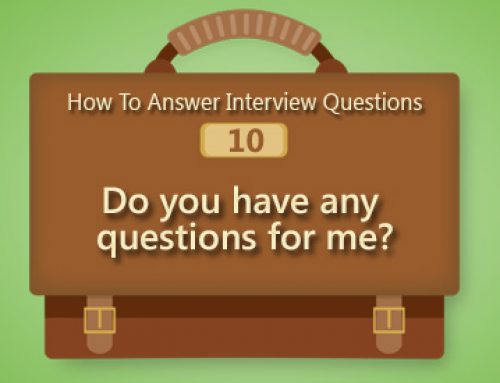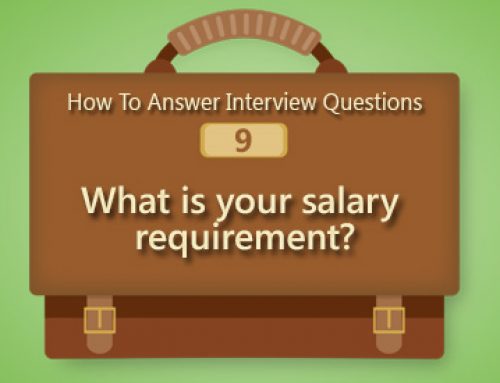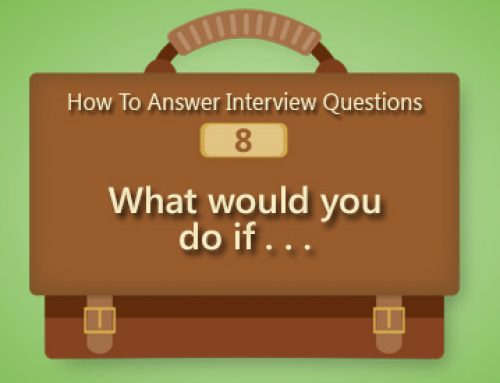4. “What are your strengths?”
The movie, Star Wars: The Force Awakens (2015) is a great example of how to answer this interview question. Let’s consider the character of Rey. When we meet her, she’s an effective scavenger. Also, she can understand BB-8’s beeps and whistles. Later we discover that she can handle herself in a physical fight. We also learn that she can repair and fly Han Solo’s Millennium Falcon herself. Additionally she sees visions. And when she is taken captive she withstands the interrogations and demonstrates her strength in the Force.
So which strength(s) Rey should share would vary depending on what type of job she was pursuing. The job description or posting is one source of valuable information that can help you identify your most relevant strengths for this opportunity. What you define as a strength for one position could very easily be seen as a liability for a different type of position and company culture.
Good Interview Answers for this Popular Interview Question
To reply to this frequently asked top ten interview question, see some additional tips and examples below. Here’s the interviewer’s side of what they want to hear (and don’t want to hear) in response to this question.
Alternate versions of this question include:
“What is your greatest strength?”
“What are your top three/top five strengths?”
Your answer should be:
- strengths that are relevant to the job you’re pursuing with them
- examples of results or accomplishments that demonstrate and “prove” strengths you claim
- what you bring that’s related to problems they want solved by role
- differentiators that separate you from competition
- possibly a story that shows your strength in action producing results
Your answer should not be:
- long list of many traits
- unorganized and unfocused
- generic response that many others pursuing that role would also claim
Here’s How to Create Your Answer:
Consider whether interpersonal traits would be a stronger area to demonstrate your value rather than the more functional skills that you may share with many candidates.
If you have several accomplishments that demonstrate proof of your strengths, pick those that are most memorable, particularly if they are related to what you have identified as being important in the job.
Ask yourself what combination of factors that you bring to them will make you desirable. This is because you want to match the situation they are in or the challenges they want this position to address. Consider your experiences, education, personality traits and skills.
Example #1
“In addition to my strong engineering skills my boss also told me that I was the best engineer he’d worked with in the past 5 years at communicating and working with people. Despite my age, in my prior job I received an award. This was for leading a cross functional team including engineering, manufacturing, sales and customer support. We successfully solved a big problem with one of our most important products. Because that was responsible for 20% of the company’s revenue.”
Example #2
“I think my biggest strength is my ability to partner with management to help organizations achieve their business goals.
From putting in effective financial information to designing reports. Also, I design report cards and CPIs. Therefore, they enable the rest of the organization to make the right kinds of decisions around where they’re going.
That helps them to highlight when there’s risk and when there’s exposure. This is so they can make quick decisions around the operation. Additionally, I also am very good at having a strategic view of the future. Therefore, translating that back to the more tactical initiatives that are required to achieve that strategy.”
Example #3
“I would say one of my best strengths is active listening. It’s amazing what you can glean from somebody if you just let them talk about it.
An example would be when I first got the regional role outside the corporate office. I handled the employee relations for all of our XXX communities. And we received a lot of employee issues from this one facility, one of our communities. So I decided to go out there and talk to all the staff.
Eventually, a pattern was emerging to where the executive director at the time was a fairly new executive director. What the employees were telling me was he’s a great guy, but we have this problem. Another, he’s a great guy but this other person doesn’t want to work, and nothing is being done about it.
I was able to sit down with that executive director after listening to his employees. I said that everybody thinks you’re a great guy. And you’re the type of manager that wants to please everybody all the time. But you end up pleasing nobody because you’re not holding people accountable for their jobs.
Once we were able to make that discovery, I was able to coach him through that. Work with him from that point. So my strength of listening was a key factor that helped solve their employee relation problems in that location.”
NEED SOME MORE HELP?
Finally, to further improve your own answer to this question, get immediate access to the “WHAT’S RIGHT WITH YOU?” Guide in the Hollywood Movie Method Job Winning Series. This Guide includes 12 sample answers given by real people for this question. You will discover ratings for each answer that will help you quickly refine your own answer to be even more effective.
This Guide also includes samples and complete how to answer training for even more questions you face in your job interviews.






